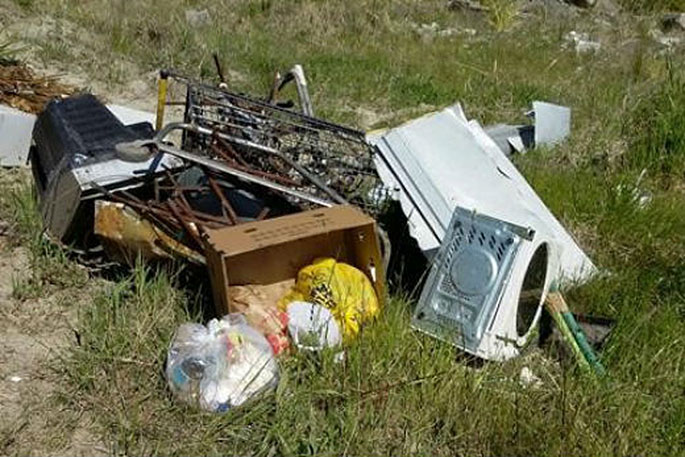Whakatane District Council's Projects and Services Committee has decided not to proceed with a kerbside inorganic waste collection service, or with free or reduced-cost inorganic waste disposal days at the Whakatane Transfer Station.
A report received by the committee last week highlighted a number of significant issues with inorganic waste collections and confirmed that few local authorities now provide such a service.
Inorganic waste typically consists of larger household items which can't be disposed of in kerbside bins, such as whiteware and furniture.
Solid Waste Manager Nigel Clarke says comments had been sought from other councils and a cost estimate provided, following requests by Council and Community Board elected members for an investigation of an inorganic waste collection service.
The report indicated that an annual kerbside service for 12,050 properties would generate up to 200 tonnes of inorganic waste and cost an estimated $129,500 (including GST), to collect, while haulage and landfill fees would add a further $17,250 to the total cost.
Meanwhile, free or reduced-fee days for disposing of inorganic items at the Whakatane Transfer Station would generate an estimated 250 tonnes of waste, which would result in about $22,000 in haulage and landfill costs.
Nigel points out that no budgeted expenditure for either option had been included in the Council's 2017/18 Annual Plan.
'Negative effects include the visual impacts of piles of waste at the kerbside and the likelihood that excluded items will be left behind by the collection contractor,” he says.
'Such collections are viewed as counter-productive to a user-pays waste minimisation philosophy. The health and safety implications also need consideration, as experience elsewhere indicates that there are likely to be instances of hazardous materials being put out for collection.”
Nigel says proponents of inorganic collections often cited a reduction in ‘fly-tipping' as a justification, but again, experience elsewhere indicated that this was more a 'behavioural issue”.
Committee members adopted a recommendation not to proceed with inorganic service options and expressed a view that community-based recycling and re-use services were likely to meet at least some of the service needs discussed in the report.



0 comments
Leave a Comment
You must be logged in to make a comment.